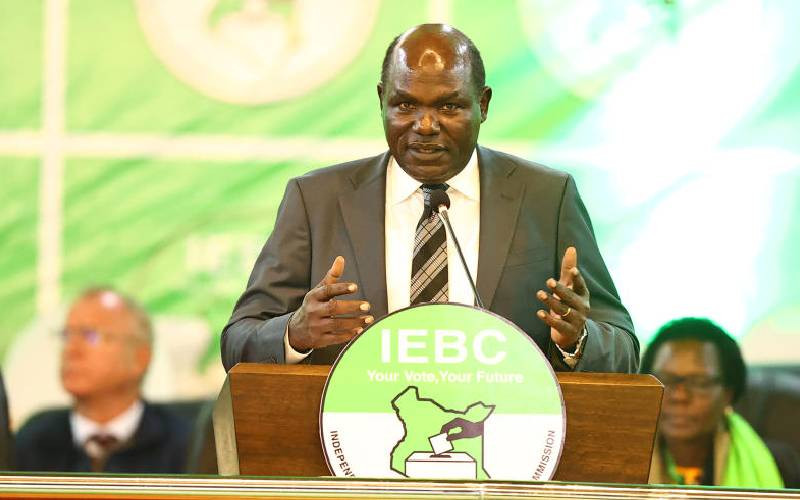×
The Standard e-Paper
Kenya’s Boldest Voice

A week after his retirement as the chairman of the electoral commission, Wafula Chebukati took the witness stand in a tribunal investigating the conduct of a former colleague.
Although not on the dock, Chebukati would defend his tenure at the Independent Electoral and Boundaries Commission (IEBC), saying he had created the most suitable environment for his fellow commissioners, including the suspended Irene Masit facing the Aggrey Muchelule-led tribunal, to thrive.